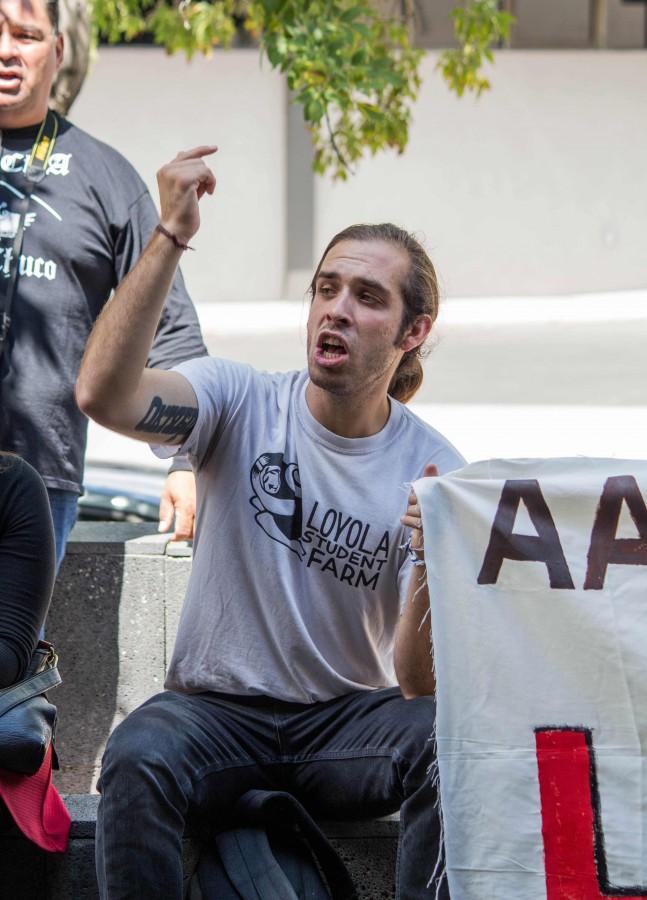Huddled around the marble steps of the Mexican Consulate, 30 protestors wait for the Consul General of Mexico to respond to disappearance of the 43 Ayotzinapa students who went missing on Sept. 26.
The protestors, composed of UTEP students and community members, formed part of Ayotzinapa Sin Fronteras, a march to commemorate the one year disappearance of the 43 Ayotzinapa students, organized by Sin Fronteras, a local nonprofit, and student organization Movimiento Estudiantil Chicano De Aztlan.
The march began at UTEP, made a stop in front of the office of U.S. Rep. Beto O’ Rourke, D-TX to protest Plan Merida, and ended downtown at the Mexican Consulate, where organizers of the march turned in 43 letters written by UTEP and community organizations, to be delivered to Mexican President Enrique Peña Nieto
After speaking with Mexican Consul General Jacobo, Guillermo Glenn, community organizer with a Unión del Pueblo Fronterizo, an advocacy group, tore up a document Prado had given to the three organizers who spoke with him.
“Esta información no vale nada, porque como podemos tener confianza si después de un año no aparecen? No ay ningún data de confianza del gobierno (This information is worthless, how can we have trust if after a year they have not appeared? There is no trustworthy piece of information from the government),” Glenn said.
At first, organizers were not allowed to enter the Mexican Consulate because officials said protestors were being rowdy. After organizers told officials they were peacefully protesting, they were allowed to enter the consulate and speak with Prado.
“He gave us, according to what the Mexican government has said, that they have new information, that they have set up a new system to get to know what happened to the students,” said Rosa Gomez, a history graduate student and one of three organizers to speak with Prado.
However, Gomez said they were unsatisfied by Prado’s response.
“The way we felt, it was that they don’t want to keep on looking,” Gomez said. “I asked him what did the parents say (of the 43 students) because supposedly Peña Nieto was talking to the parents, he couldn’t tell me. He couldn’t tell me the side of the parents.”
Prado told the organizers he would deliver the letters to Enrique Peña Nieto, and that he should get an e-mail confirming the president received it. Gomez said she will e-mail Prado in a week to confirm he sent the letters.
“I think it’s commemorating the idea that we have to keep asking the right questions, even if it’s a bit scary,” said Jonathan Bustillos, sophomore pre-nursing major.
The 43 missing students were part of the Ayotzinapa Rural Teachers College. Their bus was attacked in the city of Iguala, Guerrero, while they were headed to protest in favor of education reforms.
Although the Mexican government closed the case and declared the students were burned and buried in a Cocula dump, an independent forensic investigation by the Argentinian government countered the Mexican government’s own investigation.
“¿Donde están los 43? Porque no nos han dicho la versión real? (Where are the 43? Why have they not given us the truth?),” Gomez said.









